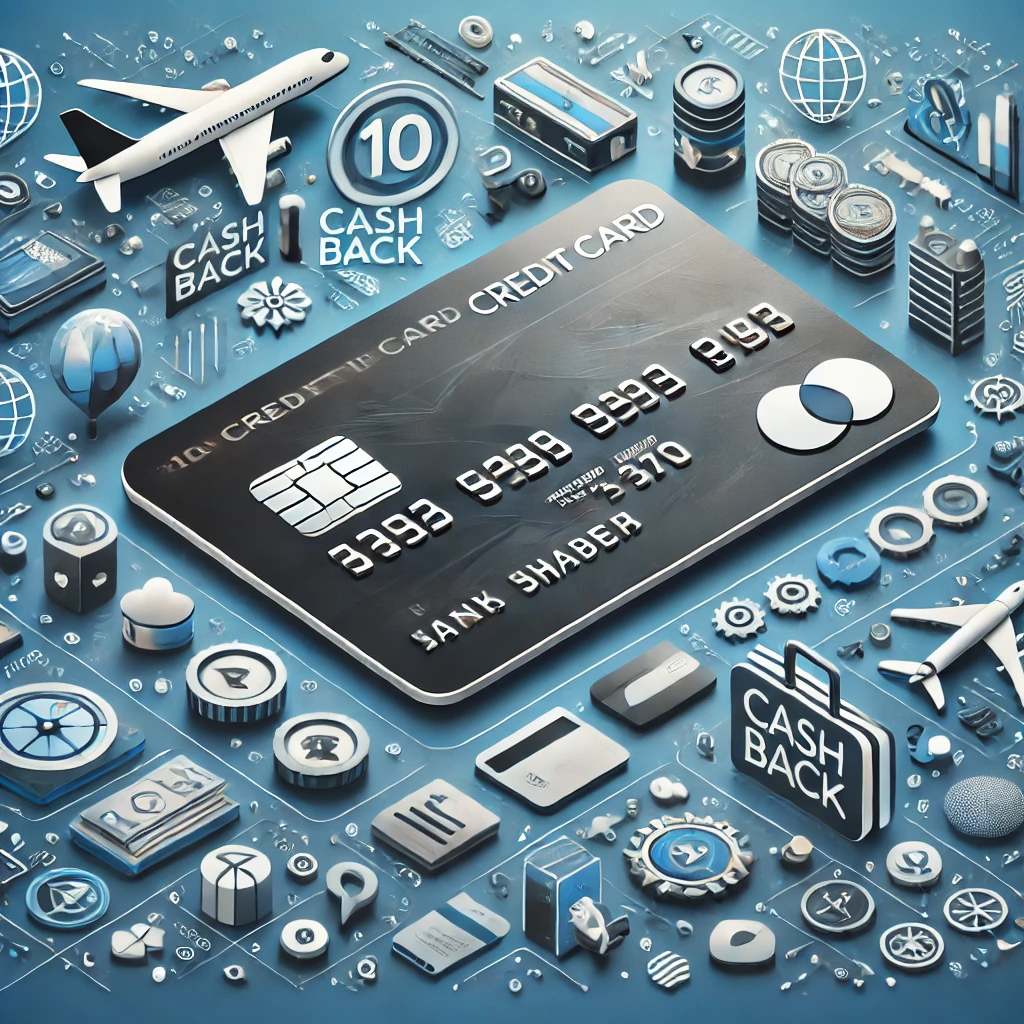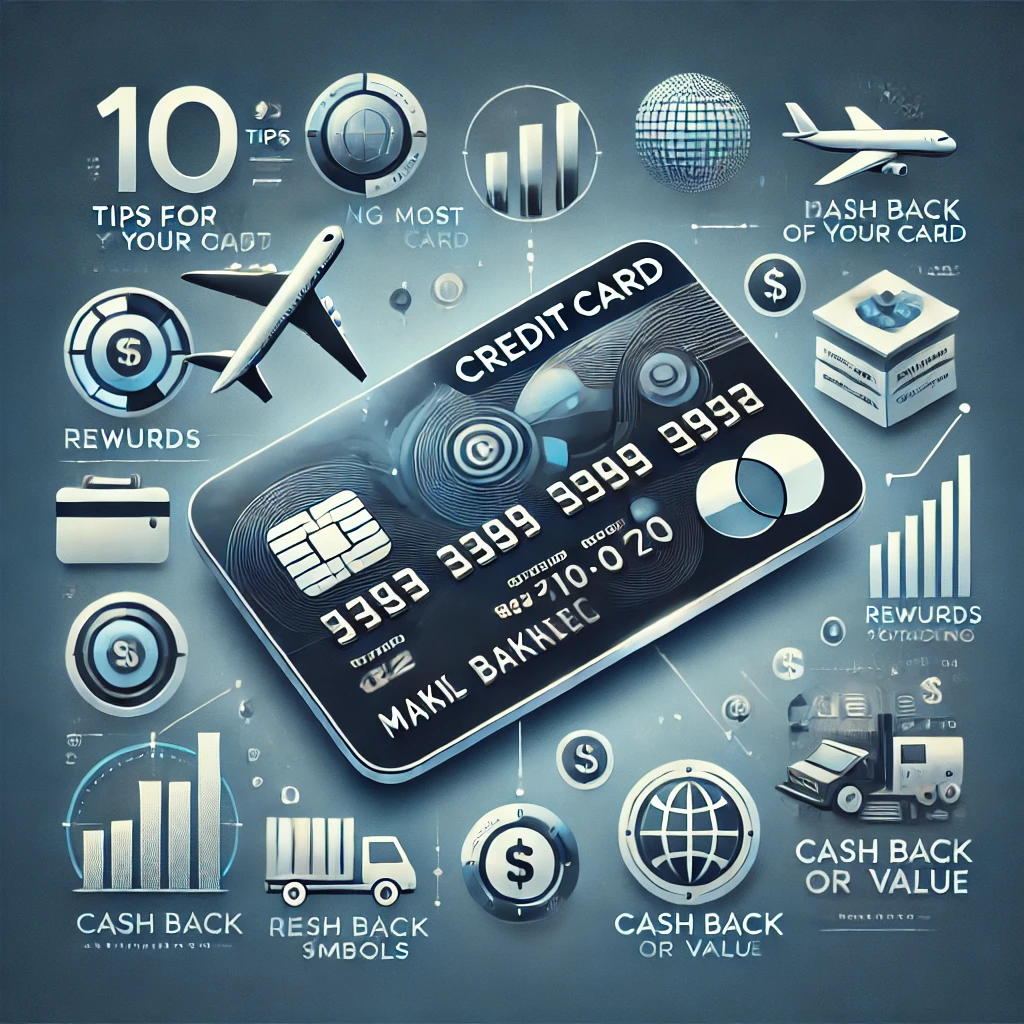
In the ever-evolving landscape of personal finance, credit cards stand as a versatile tool, offering convenience, security, and the potential for significant financial rewards. However, to truly maximize the benefits of a credit card, one must approach its use with a well-thought-out strategy. Below, we provide 10 essential tips that will help you extract the most value from your credit card while safeguarding your financial health.
1. Understand Your Credit Card’s Features and Benefits
The first step in maximizing your credit card is to thoroughly understand its features and benefits. Every credit card comes with a unique set of terms and conditions, including interest rates, rewards structures, and fees. By familiarizing yourself with these details, you can tailor your spending habits to align with the card’s strengths.
For instance, some cards offer cashback on everyday purchases like groceries and gas, while others provide travel rewards for frequent flyers. Knowing which categories your card rewards the most can help you prioritize your spending in those areas, ensuring that you earn the maximum rewards possible.

2. Pay Your Balance in Full Each Month
One of the cardinal rules of credit card use is to pay your balance in full every month. Carrying a balance not only incurs interest charges but also can lead to long-term debt that erodes any benefits your card might offer. By paying off your balance each month, you avoid interest charges entirely and maintain control over your financial situation.
Moreover, consistent full payments demonstrate responsible credit behavior, which can improve your credit score over time. This, in turn, can make you eligible for better credit offers, including cards with more lucrative rewards and lower interest rates.
3. Take Advantage of Sign-Up Bonuses
Credit card issuers often entice new customers with sign-up bonuses that offer significant rewards for meeting a spending threshold within a specified period, typically the first three months. These bonuses can be substantial, often ranging from several hundred dollars in cashback to tens of thousands of reward points.
To make the most of these offers, plan your spending carefully. Consider timing large, planned purchases to coincide with the period after you receive your new card. However, avoid spending beyond your means just to meet the bonus threshold; it’s only beneficial if you can pay off the balance in full.
4. Utilize Rewards Programs Efficiently
Most credit cards offer rewards programs that allow you to earn points, miles, or cashback on your purchases. To maximize these rewards, it’s essential to understand how they are earned and redeemed.
For example, some cards offer higher rewards for specific categories like dining, travel, or groceries. If your card offers 3% cashback on dining, you should prioritize using it for restaurant purchases. Additionally, pay attention to any rotating categories or special promotions that might offer enhanced rewards for limited periods.
When it comes time to redeem your rewards, evaluate the options carefully. Some redemption methods, like using points for travel or transferring them to airline partners, can offer more value than others, such as redeeming for gift cards or statement credits.
5. Avoid Unnecessary Fees
Credit cards often come with various fees, including annual fees, late payment fees, and foreign transaction fees. While some of these fees are unavoidable, others can be easily circumvented with careful planning.
For example, if you frequently travel abroad, consider a card that does not charge foreign transaction fees. Similarly, avoid late fees by setting up automatic payments or reminders. If your card has an annual fee, make sure the benefits it provides are worth more than the cost of the fee. If not, consider switching to a no-fee card.
6. Monitor Your Credit Utilization Ratio
Your credit utilization ratio—the amount of credit you’re using compared to your total available credit—plays a crucial role in determining your credit score. A lower utilization ratio is generally better, as it indicates that you are not overly reliant on credit.
To maintain a healthy credit utilization ratio, try to keep your balances below 30% of your credit limit. If possible, pay off your balance multiple times throughout the month to keep your reported utilization low. This practice not only boosts your credit score but also keeps you from accruing significant debt.
7. Regularly Review Your Credit Card Statements
One of the most effective ways to protect yourself against fraud and unauthorized charges is to regularly review your credit card statements. By closely monitoring your transaction history, you can quickly spot any discrepancies or unfamiliar charges.
If you notice any suspicious activity, report it to your credit card issuer immediately. Most credit cards offer zero liability protection for fraudulent charges, meaning you won’t be held responsible as long as you report the issue promptly. Regularly checking your statements also helps you stay on top of your spending, ensuring that you don’t accidentally overspend.
8. Use Credit Card Perks and Protections
Beyond rewards, many credit cards offer additional perks and protections that can provide significant value. These may include extended warranties, price protection, purchase protection, and travel insurance.
For example, if you purchase an item with your credit card and it’s damaged or stolen shortly after, your card’s purchase protection might reimburse you for the cost. Similarly, if you book a trip with your card and it’s canceled due to unforeseen circumstances, your card’s travel insurance may cover the expenses. Make sure you are familiar with the perks your card offers and take full advantage of them when appropriate.
9. Avoid Cash Advances
While your credit card might allow you to withdraw cash, also known as a cash advance, it’s typically best to avoid doing so. Cash advances often come with high fees and immediate interest charges, which can add up quickly and make this option extremely costly.
Instead of using a cash advance, consider other options like a personal loan or using funds from a savings account. If you find yourself in a situation where a cash advance is unavoidable, make sure to pay it off as quickly as possible to minimize the interest charges.
10. Continuously Educate Yourself on Credit Card Best Practices
The world of credit cards is constantly evolving, with new products, features, and regulations emerging regularly. To ensure you are always getting the most out of your credit card, it’s important to continuously educate yourself on the latest best practices.
Stay informed about changes to your card’s terms, new credit card offerings that might better suit your needs, and shifts in consumer protections. By staying knowledgeable, you can make informed decisions that keep your credit card working in your favor.
You Can Also Read: The Future of Credit Cards: Trends to Watch in 2024
Making the most of your credit card requires a combination of strategic spending, careful management, and ongoing education. By following the tips outlined above, you can not only maximize the rewards and benefits your credit card offers but also protect your financial health and improve your overall creditworthiness. Whether you’re looking to earn travel rewards, build credit, or simply enjoy the convenience of cashless transactions, these strategies will help you achieve your financial goals with confidence.